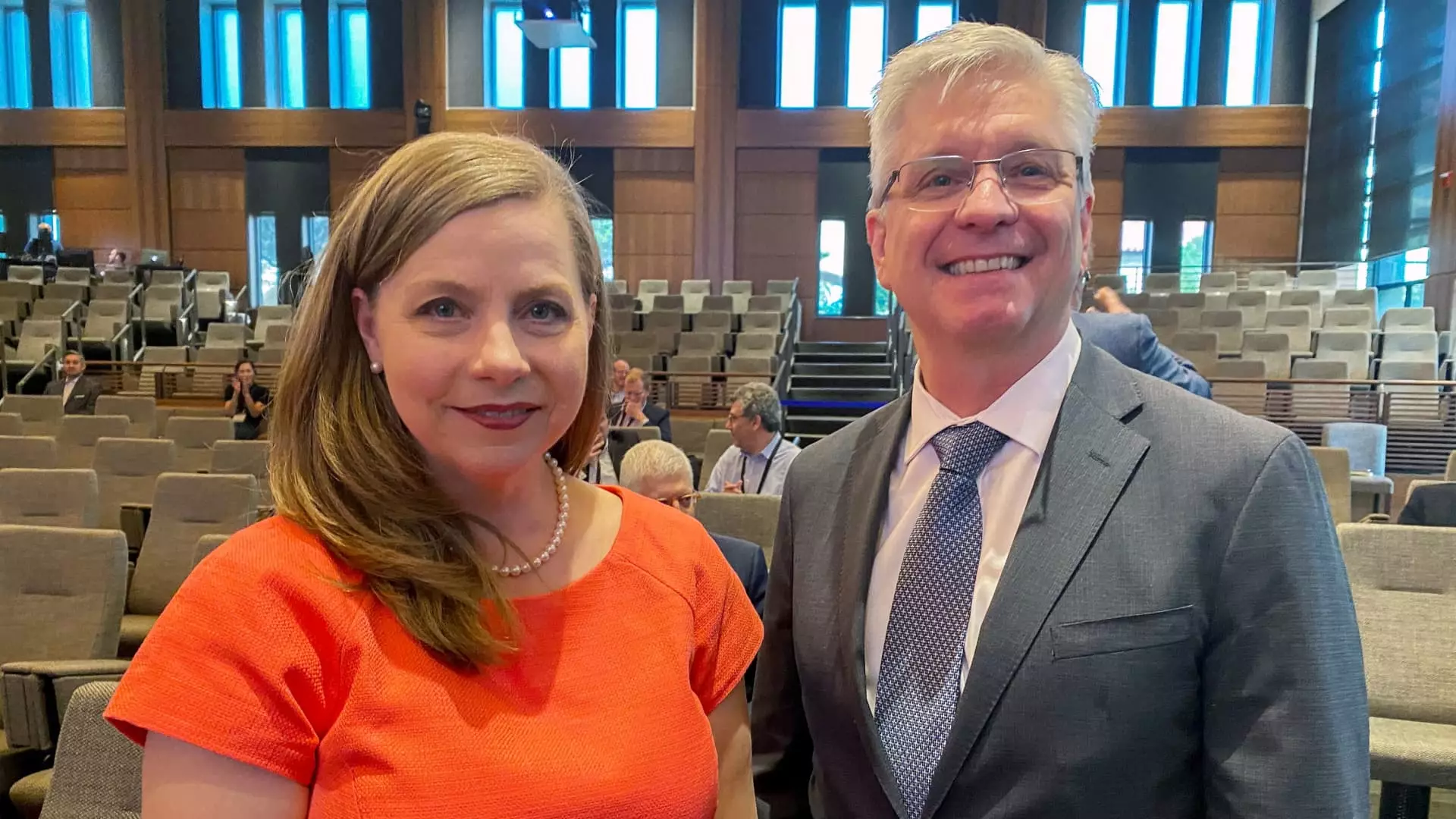The exit of Michael Barr, Vice Chair for Supervision at the Federal Reserve, marks a significant moment for the U.S. banking sector that could herald an era of more lenient regulations. Barr, who announced his resignation effective next month, decided to step down to avoid a contentious legal battle with the Trump administration, which had been contemplating seeking his removal. His departure, earlier than initially planned, opens the door for a new appointment that may align more closely with the regulatory deregulatory stance championed by Donald Trump.
The early departure of Barr is pivotal not just for the Federal Reserve, but for the entire financial landscape in the United States. It concludes Barr’s tenure approximately 18 months ahead of schedule and alleviates one of the liabilities obstructing Trump’s agenda to eliminate regulatory constraints imposed during previous administrations. The prospect of a banking sector unburdened by rigorous oversight has infused an air of optimism, particularly among financial institutions that thrived following Trump’s election in 2016.
Speculation around potential appointees for Barr’s vacant position are already circulating, with only two Republican governors, Michelle Bowman and Christopher Waller, being viable candidates. The silence from Waller and Bowman’s previous criticisms of Barr’s regulatory approach to capital requirements suggests a shift. This comes at a time when the financial sector is primed for changes that could enhance profitability through fewer restrictions.
One of the most crucial developments in the post-Barr regulatory environment is the emergence of Bowman as a leading candidate. With a history rooted in community banking and serving as the Kansas bank commissioner, her experience positions her as an advocate for the sector, potentially enacting reforms that prioritize banking interests. Her vocal opposition to Barr’s “Basel III Endgame” proposal, which sought to tighten capital requirements for banks significantly, underscores a philosophy rooted in more flexible regulations.
Analysts are beginning to contemplate what this shift could mean for banks, particularly concerning the controversial framework for bank stress tests and merger approvals. According to financial experts, Bowman’s leadership could usher in a restructured regulatory environment that is less opaque and more accommodating to lenders. Expectations suggest that if a new version of the Basel Endgame emerges, it is likely to be crafted in a way that aligns better with the realities of the U.S. banking environment, easing the burdens that Barr had proposed.
Following the announcement of Barr’s resignation, the market responded positively, with significant increases in bank stocks, particularly for major players like Citigroup and Morgan Stanley. The KBW Bank Index saw a notable rise of 2.4%, signaling investor confidence in the immediate future of the banking sector under potentially more accommodating leadership.
There is widespread sentiment that allowing banks to maintain lower capital requirements could provide them with more flexibility to increase shareholder returns through stock buybacks. This is a vital indicator of financial health and investor sentiment, as banks seek to enhance their capital structure without the constraints of excessive regulatory demands.
While Barr’s resignation from his supervisory role is significant, his continuing position as one of the seven Fed governors ensures that the current 4-3 Democratic majority remains intact on the Fed board. This balance of power is essential for maintaining operational stability and influencing broader economic policies, even as the supervisory structure sees a shift towards potentially less stringent oversight.
Brian Graham, co-founder of Klaros Group, noted that Barr’s strategy to resign from the vice chair role while retaining governorship might have been a calculated move in preserving that Democratic advantage. The implications of this maneuver could impact how future regulatory frameworks are developed, mitigating concerns about sudden, sweeping changes that could unsettle the financial markets.
Michael Barr’s early departure represents more than just a shift in leadership; it signifies a potential transformation in regulatory dynamics that could reshape the landscape of the U.S. banking industry. As the Trump administration prepares to install a new vice chair, the anticipation of industry-friendly reform could lead to a more favorable operational environment for banks, which have consistently lobbied for reduced oversight. The coming months will be telling as new appointments unfold and actions taken by incoming officials will determine the extent of regulatory changes and their impact on the financial landscape.

